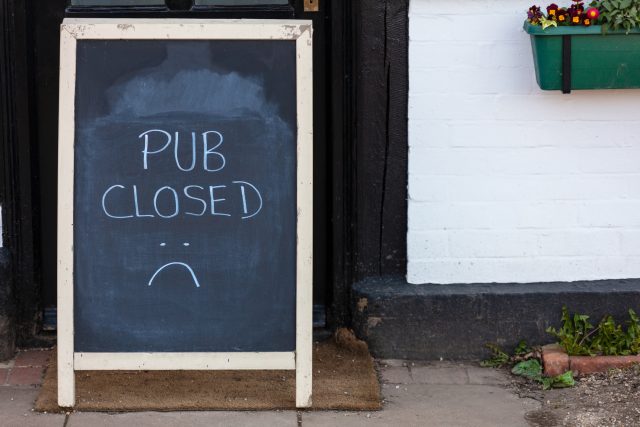This website uses cookies so that we can provide you with the best user experience possible. Cookie information is stored in your browser and performs functions such as recognising you when you return to our website and helping our team to understand which sections of the website you find most interesting and useful.
Covid inquiry finds ‘no basis’ for stopping pubs selling alcohol
There was “no basis” for stopping pubs selling alcohol during the pandemic, according to the Covid inquiry.

In a report cited by the BBC, Dr Roland Salmon who was the former Public Health Wales communicable diseases director told the inquiry that the measures to stop pubs serving alcohol during the pandemic seemed to be “an overly enduring legacy of the chapel heritage”.
Informing the Covid inquiry, Salmon criticised the Welsh government’s decision to prevent publicans from selling alcohol as part of its strategy to stop the spread of Covid as well as adding in the measures to restrict access to certain supermarket aisles during the pandemic.
Dr Salmon said: “Pubs and restaurants settings are an issue when people congregate in them. Those people who are vulnerable are best avoiding them and advised to do so. But opening up and not having a beer, that seems perhaps an overly enduring legacy of the chapel heritage, I don’t know.”
Dr Salmon explained: “I can think of no basis on why you might think they would work. Whether you leave the aisles open or you leave them shut really doesn’t matter. Actually, if people are going into the supermarket, why do you want to shut one aisle and not the other one?”
Speaking about the impact, Dr Salmon told the inquiry that the ” losses of opportunities and that economic loss will translate into ill-health and loss of life expectancy” and added that “it may not be as immediate, but it will certainly be there”.
According to Dr Salmon, rather than a 17-day firebreak lockdown, what was needed to reduce the spread of Covid was simply good adherence to restrictions in October 2020.
He additionally pointed out that, because up to 30% of cases in young adults were asymptomatic, the spread of the virus would increase anyway once any firebreak had ended.
Despite Dr Salmon’s views, the two-week firebreak lockdown which was introduced in Wales during late October 2020, according to Prof Michael Gravenor of Swansea University, should have been longer.
Gravenor led the modelling team and said that it took 39 days for infections to return to pre-firebreak levels, but admitted that with hindsight a longer firebreak would have been more effective and could have suppressed the second wave.
Gravenor’s views contrasted with earlier evidence from Salmon who maintained that the firebreak method was still something that the government would find “hard to justify”.
A year after the first lockdown it was revealed that Covid restrictions lead to £8.2bn loss in beer sales in British pubs, according to the British Beer & Pub Association which highlighted how thousands pubs had permanently closed.
Added to this, figures from the Licensed Trade Charity showed that the number of people requiring its services more than trebled during 2020, compared to the previous year. In 2019, a total of 23,020 people sought help from the charity, but by 2020 that number was 73,171.

